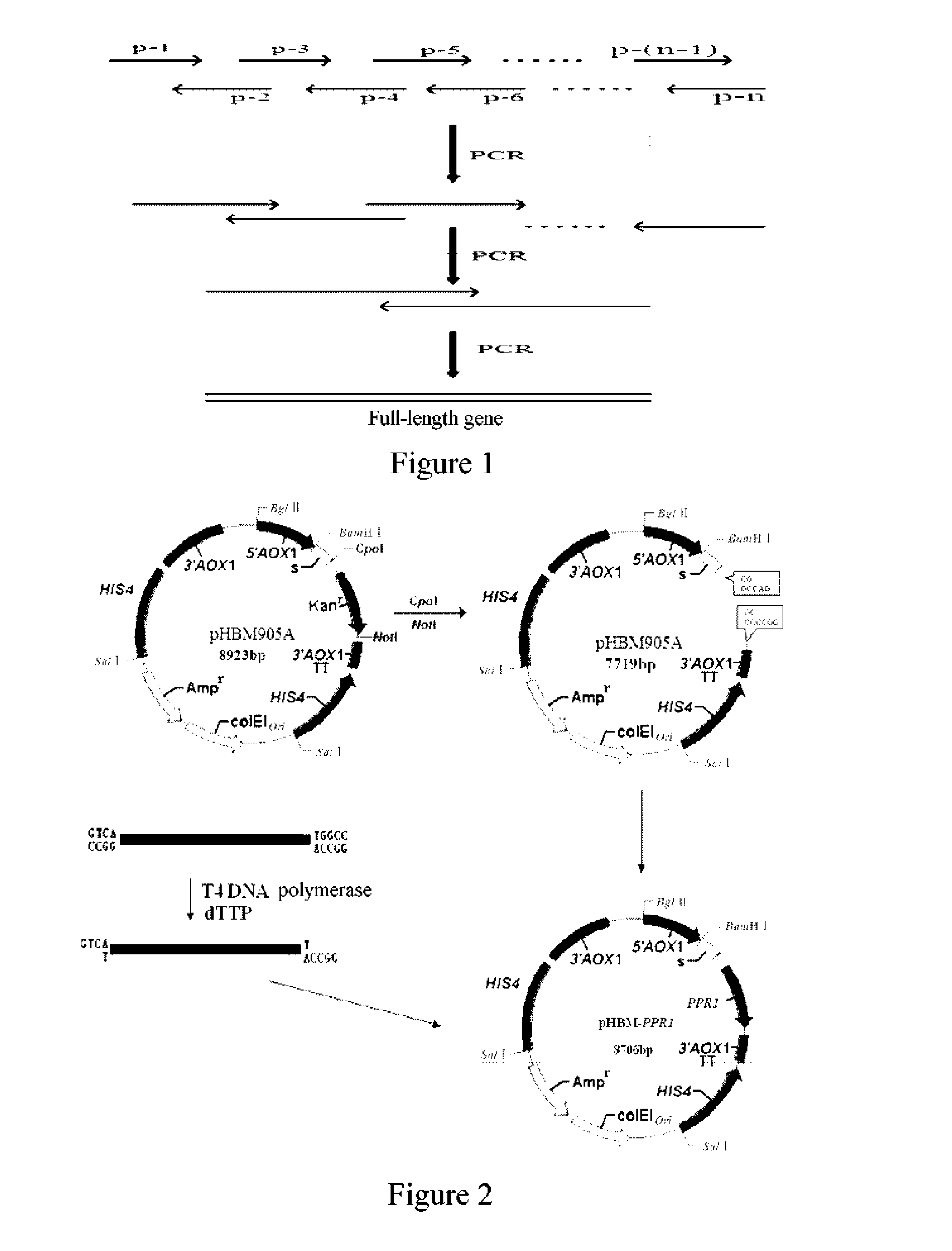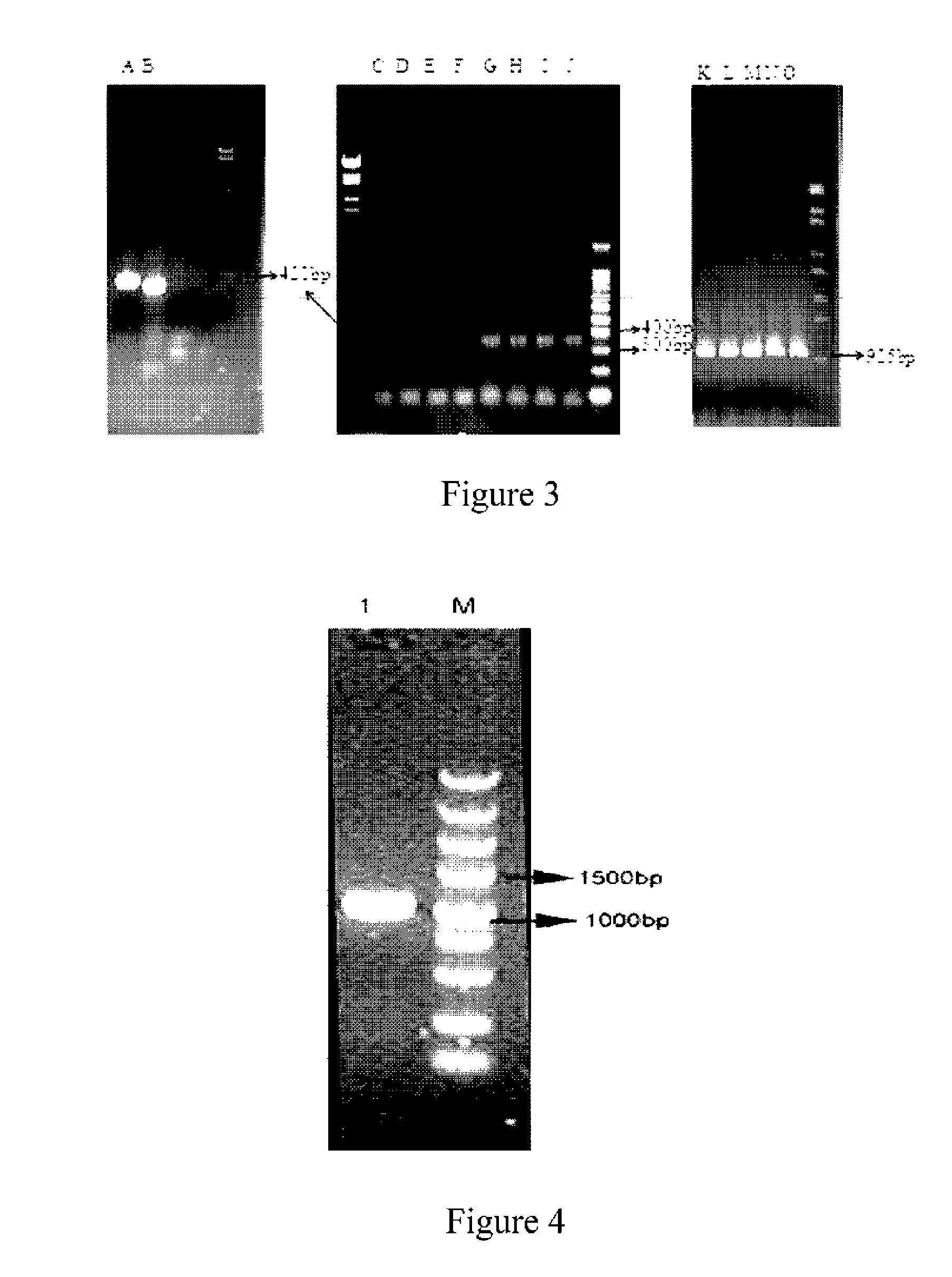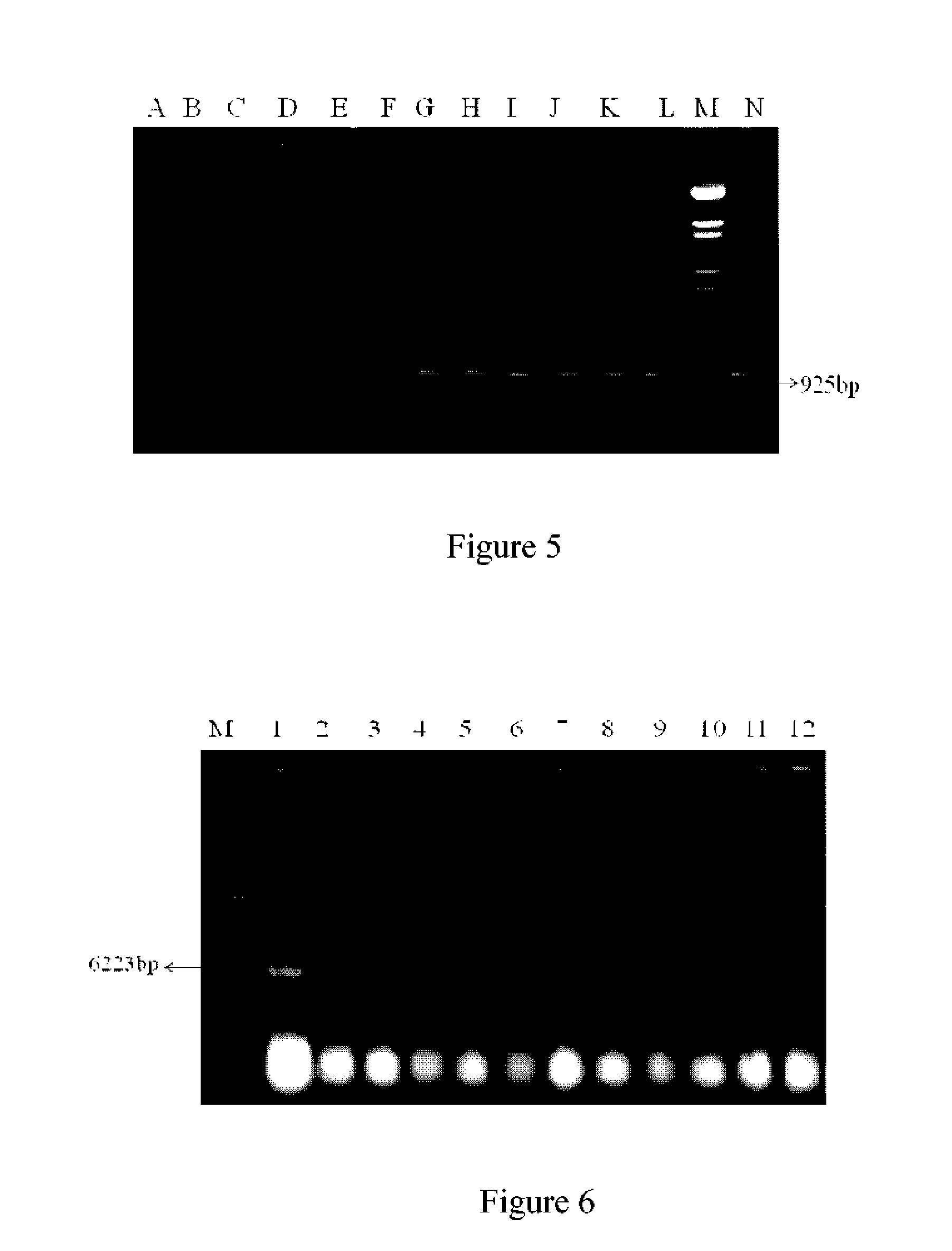DNA molecule used for recombinant pichia plasmid and recombinant pichia strain expressing ppri protein of deinococcus radiodurans
a technology of ppri protein and plasmid, which is applied in the field of biotechnology, can solve the problems of ari in humans, difficulty in efficiently and massively obtaining ppri protein through human cell engineering, and decreased protein activity, and achieve the effect of efficiently and efficiently expressing and purifying ppri protein
- Summary
- Abstract
- Description
- Claims
- Application Information
AI Technical Summary
Benefits of technology
Problems solved by technology
Method used
Image
Examples
example 1
Optimization and Synthesis of the DNA Molecule of the Present Invention
[0049]In the present invention, the sequence of an Open Reading Frame (ORF) in the pprI gene (DR_0167, Gene ID: 1798483) of Deinococcus radiodurans R1 was optimized and modified to encode and synthesize a new pprI gene (Pi-pprI gene), i.e. the nucleotide sequence set forth in SEQ ID NO: 1, so as to efficiently express the protein of interest, provided that the amino acid sequence of PprI protein kept constant.
[0050]1. Synthetic Method
[0051]In the present invention, a series of overlapped primers of nucleotide sequences set forth in SEQ ID NOs: 2-41 were designed and synthesized in accordance with an artificially designed Pi-pprI gene, and then a DNA molecule comprising the nucleotide sequence set forth in SEQ ID NO: 1 and carrying a Cpo I restriction endonuclease site and a Not I restriction endonuclease site (so as to be convenient for subsequent construction of a recombinant plasmid) was synthesized and obtaine...
example 2
Synthesis of a DNA Molecule (Introduced with a 6× his Tag Sequence) of the Present Invention
[0057]With the DNA molecule obtained in Example 1 as the template, a PCR amplification was carried out with the primer of a nucleotide sequence of SEQ ID NO: 42 carrying a 6× His tag sequence (CATCATCACCACCATCAT) and a primer of a nucleotide sequence of SEQ ID NO: 41, to obtain a DNA molecule comprising a nucleotide sequence set forth in SEQ ID NO: 1 and a 6× His tag sequence (carrying a Cpo I restriction endonuclease site and a Not I restriction endonuclease site). Wherein, the primer SEQ ID NO:42 was obtained by introduction of a 6× His tag sequence based on the primer p-1.
[0058]The PCR amplification was carried out under the following conditions: initial denaturation at 95° C. for 5 min; denaturation at 94° C. for 30 s, annealing at 50° C. for 30 s, extension at 72° C. for 90 s, for totally 30 cycles; and finally extension at 72° C. for 10 min, then kept at 4° C.
[0059]3 μl of the PCR ampli...
example 3
Construction of a Recombinant Pichia Plasmid
[0060]A Pichia expression vector pHBM905A (8923 bp) was subjected to double digestions by Cop I and Not I enzymes, separated by agarose gel electrophoresis, and the large fragment (7719 bp) was recovered by cutting the gel.
[0061]The PCR product (1005 bp) synthesized in Example 2 was treated with T4 DNA polymerase in the presence of dTTP, and then ligated with the large fragment recovered by cutting the gel, to obtain a Pichia recombinant expression plasmid pHBM-905A-Pi-pprI (8706 bp), abbreviated as pHBM-Pi-pprI, and the construction process is shown in FIG. 2.
PUM
 Login to View More
Login to View More Abstract
Description
Claims
Application Information
 Login to View More
Login to View More - R&D
- Intellectual Property
- Life Sciences
- Materials
- Tech Scout
- Unparalleled Data Quality
- Higher Quality Content
- 60% Fewer Hallucinations
Browse by: Latest US Patents, China's latest patents, Technical Efficacy Thesaurus, Application Domain, Technology Topic, Popular Technical Reports.
© 2025 PatSnap. All rights reserved.Legal|Privacy policy|Modern Slavery Act Transparency Statement|Sitemap|About US| Contact US: help@patsnap.com



